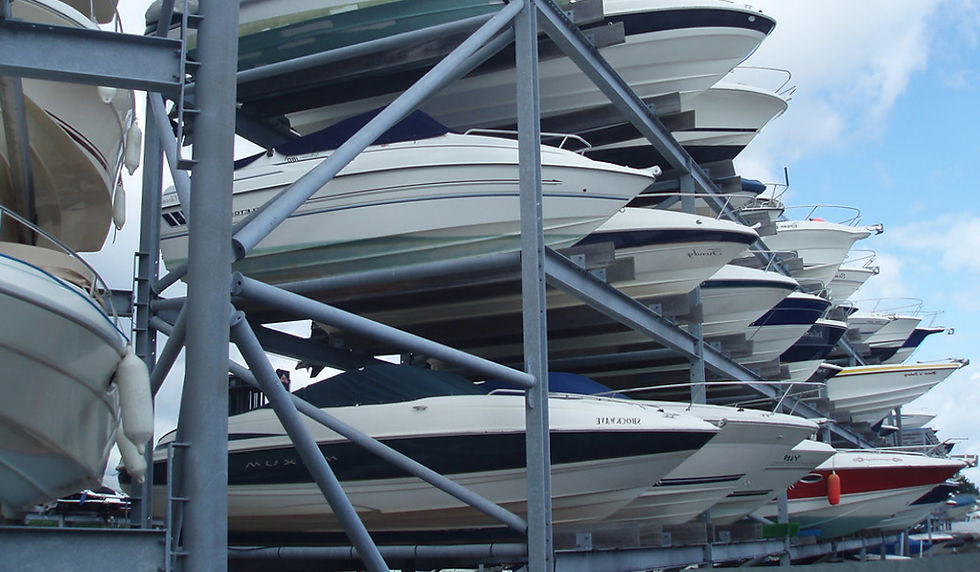

Nov 26, 2025


Nov 19, 2025

Updated: May 12, 2020
By: Craig Richie

Your boat is valuable, and you’ll want to protect it. Here’s a simple guide to arranging insurance coverage for your new pride and joy.
When we buy a boat, we think of the fun times ahead – summer afternoons on the wakeboard, peaceful after-dinner cruises, quiet mornings between you and the fish. Boating is all about enjoying life, so we focus on the happy memories our new boat will bring.
But no different than cars or homes or vacation properties, it makes sense to protect your investment by taking out the proper insurance coverage. While it’s tempting to simply insure your new boat with a rider on your house policy, you’re always better off to buy a separate boat policy. Because homes aren’t normally exposed to the types of threats boats face, house policies don’t generally provide for possible mishaps like the boat being involved in a collision while under tow or being hit by another boat that broke free from its slip in a storm. If that happens, and those perils aren’t named in the house policy, you could be out of luck when you file a claim.
Discuss your insurance needs with an insurance broker that specializes in marine policies. Their experience can prove invaluable and they can suggest additional forms of coverage you might want, like insurance against damage caused by animals. This is a huge consideration in Canada, where we tend to store our boats for several months over the winter. Ever seen what a family of raccoons can do to a boat? It’s not pretty, and neither are the repair bills.
Coverage Against Loss or Damage
As with an automobile, boat insurance comes in two basic forms – coverage for the boat itself, and coverage against damage that might occur to other people and property. Where coverage for the boat is concerned, the three terms you will most-often hear are agreed value, actual cash value and replacement cost.
An agreed value policy insures the boat to a value that is agreed upon between the owner and the insurer. If your boat is destroyed or stolen through no fault of your own, the policy will pay the full insured amount. But here’s the catch – if your boat has appreciated in value, you still get the amount you agreed to, and not a penny more. So if you add any upgrades, like new electronics or install a new kicker motor, you could be on the hook for those costs unless you and the insurance company have updated the agreed value on the policy.
An actual cash value policy is a little different. Write off your boat and the insurance company will pay the actual cash value of the boat on the day it was lost. In other words, the value of the boat less depreciation. The danger here is that your idea of what the boat is worth may not align with the insurance company’s valuation.
Replacement cost coverage means that if you destroy the boat the insurance company will pay the cost to replace it, regardless of whether its value has gone up or down since you bought it. As a result, replacement cost coverage is generally considered to be the best type of coverage, since there is no haggling about the boat’s value.
Replacement cost policies are also better if the boat needs to be repaired, rather than replaced. If you hit a rock and damage the lower unit on your three-year-old vessel, your insurance may only be willing to replace the damaged engine with replacement parts that also have three years of wear and tear and depreciation on them. Using new parts (as will almost certainly be the case, since used parts are virtually impossible to find) would be considered an upgrade, and you would have to pay the difference between the cost of new parts and the depreciated value of the parts that were damaged. That could be a significant amount of money. Again, a full replacement cost policy simply fixes the boat, with no haggling.
The price of a replacement cost policy is normally only a few dollars more than the price of agreed value or actual cash value coverage – that’s a few bucks that could save you tens of thousands of dollars and countless headaches.
Coverage Against Liability
The second element in most insurance policies relates to protecting you against the cost of damages you and your boat incur to other people’s property, or costs associated with personal injury.
Damage liability is straightforward – if your boat hits another one at the marina and damages it, or you mess up and take out 20 feet of dock, your policy will pay for the necessary repairs.
Personal injury liability coverage protects you from being sued or having to pay out of pocket if you hurt another boater during an accident. This coverage typically includes medical bills, lost income, pain and suffering, and legal expenses.
Boating is fun. The best way to keep it stress-free by making sure your boat is fully protected by proper insurance coverage. Then you can enjoy the sunshine and fresh air knowing no matter what happens, someone has your back.





Comments